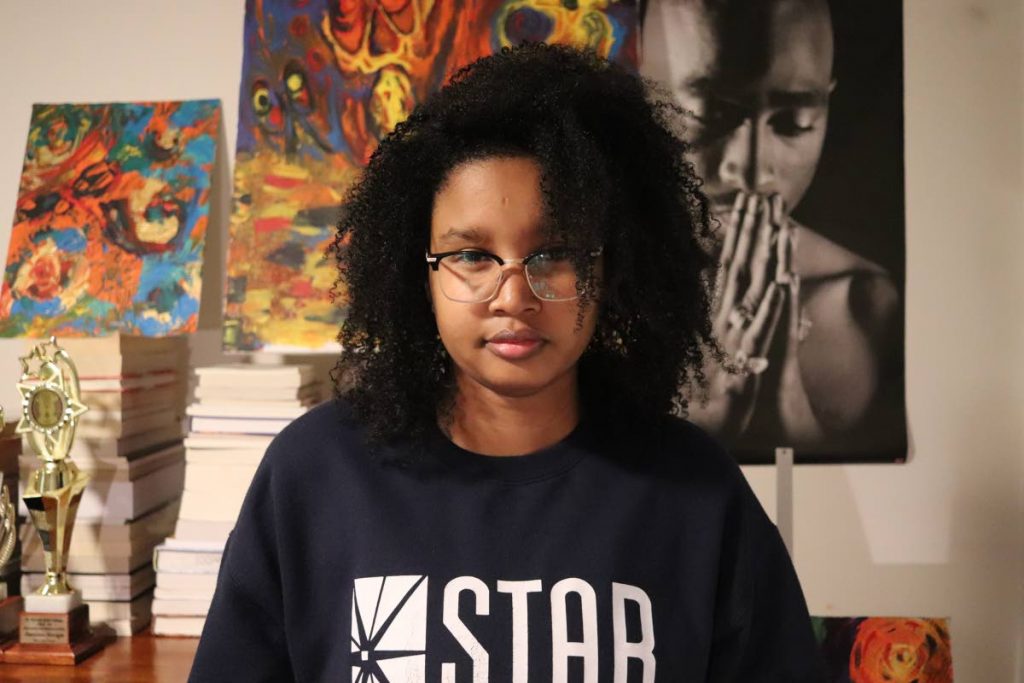A Laventille perspective

DAVIANNE HARRIGIN
IN JUNE 2018, I migrated to the US, one year and five months after the Trump administration occupied the White House. For many the US seemed to no longer be the land of opportunity, but a land rife with emboldened fascism, anti-black racism, white supremacy, and xenophobia. With the advent of social media, the internet is without lack of surveillance of unarmed African Americans murdered at the hands of American police.
Though not African American, I recall a sense of both excitement and fear as I walked out the Department of Motor Vehicles with a Florida driver’s licence. I knew that while a driver’s licence gave me freedom of movement, it also brought with it the realisation that a broken taillight could summon my extrajudicial death sentence and execution.
However, this fear of an untimely death was not alien to me. It was as familiar as Shadow’s Dingolay, as the warmth of the golden sand on Maracas Bay, as our national anthem. So too are the feelings of otherness and marginalisation. The US was not the first country I felt like an outsider. In all verity, that place was TT.
I remember my first time feeling “othered.” It was August 30, 2007, during Orientation Day at St Francois Girls’ College. It was my first time attending a school where most of my classmates were not from Laventille or East Port of Spain. My form teacher asked us to each stand and introduce ourselves, stating our names and where we are from. I felt a knot in my stomach, as I do to this day.
From an early age I knew that Laventille was viewed as a stain, an unsightly smudge on the map of our twin-island republic. I’ve heard the comments in taxis: “All ah dem is thief.” “I not going up dey. The government should bun out all ah dem.” I was aware that if ever something went missing, I was the prime suspect simply because of my address.
Those seeking to smear Laventille’s residents and justify their classism and elitism often point to our accessible education system, often stating that residents are solely responsible for their unemployment, financial instability, and wealth disparities.
I too boast of Trinidad’s free education system. I boast that I did not have to pay out-of-pocket for my CXC exams, that our government rewards top performers with additional and open scholarships, and for those who weren’t awarded scholarships, our GATE programme provided ample financial support to ensure that every citizen has equal access to higher education.
However, how equal is this access? I recall classmates spending the equivalent of a minimum wage worker’s monthly income on after-school lessons. I recall struggling through pure mathematics and my father’s response being, “You don’t need lessons. You have a textbook. Use it.”
How equal is our access to education when our scholarships are most often awarded to the students whose parents can afford private tutor sessions and after-school lessons? Dare I ask, in this educational utopia of TT, where is the equity in education in a society that describes itself as meritocratic? I ask this as a beneficiary of the Government’s scholarship programme. And for those of you who still argue that we all have equal opportunity, may I ask what social mobility have you accomplished with the resources you were given?
Our elitism and classism extend far beyond educational failings. When George Floyd’s execution by the Minneapolis Police Department beckoned a global rallying cry for racial equality and justice, Trinidadians/Tobagonians joined in the uproar. From afar, I wondered when would we feel just as aggrieved by our own instances of police brutality? In the most stomach-churning of coincidences, members of the TTPS would kill Joel Jacob, Israel Clinton, Noel Diamond and Ornella Greaves.
When the residents of Morvant and East Port of Spain exercised their right to protest, they were met with a militarised TTPS. Many, repulsed by an oppressed demographic asking for the most basic of human decency, retorted that they should be more civic in their protests; that they should not inconvenience the Trinidadian middle class and upper echelons in their plea for their right to live, to not be executed by those sworn to protect and serve them.
How can you ask of a people subjugated by law enforcement, in the most barbarian and rogue manner, to act civically? When a justice system erases from our social conscience the most oppressed, what visibility does peaceful protest restore? What methods of demanding equality and a platform to be heard are left when a political duopoly have reduced a people to stained index fingers?
I sit now in South Florida, asking when will I not be othered, when will I not be marginalised? While many of us scorn the racism and xenophobia in the US, how many of us revile the elitism and classism (and colourism) at home, and our own police brutality?
I graduate from the Massachusetts Institute of Technology in three years, SB aerospace engineering. I ask will I still be marginalised and discriminated against in the country that birthed me then? Or will my having attended an elite institution make me a worthy member of Trinidadian society, again playing into our elitism?
Will I be considered part of Trinidad’s middle class then? And if yes, will I now be deserving of life then, deserving to not be presumed guilty, deserving to give birth to my child, deserving to not be executed? Or should the government still bun’ me and my lot out? After all, I will always be from Laventille; I will always be what the TTPS describes as “certain persons.”
Davianne Harrigin


Comments
"A Laventille perspective"